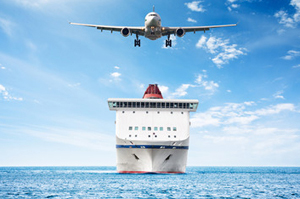Wednesday March 11, 2020 ~ SOOKE
by Chelsea Kirkpatrick ~ West Shore Voice News
Despite concerns about the spread of the COVID-19 coronavirus mounting, many people are still considering long-distance travel during spring break. But flight and cruise ship travel may not be wise at this time, based on what health officials are telling us.
In seeing close-contamination spread on cruise ships in Asia and now off the coast of California, we’ve been reminded recently of the unintended consequences of being so easily connected to the rest of the world with flights and cruises just a click away.
Global inter-connectedness brings the positives of travel excitement but also the negatives of exposure to this virus arriving right on our doorstep.
As of March 11, the World Health Organization (WHO) has declared COVID-19 as a pandemic. COVID-19 is still somewhat contained in BC, with 46 confirmed cases, four recovered and one deceased. Yet today sees the first case here on Vancouver Island – a man in his 60s having returned from a trip to Egypt.
Earlier this month a woman in a care home in North Vancouver became the first “community case,” meaning she hasn’t traveled or had known contact with anyone infected.
Health officials say the infectivity of COVID-19 is not fully known yet, with the novel coronavirus being potentially be infectious even before symptoms occur (generally after about 3 to 5 days), if they occur at all. That means you could be in contact with someone who can get you sick, without them even knowing they are infectious carriers.
Until today, we hadn’t seen a single confirmed case on Vancouver Island. As the situation likely continues to change, we should be discussing airport closures and intense screenings for ferries to keep it that way (though today BC Public Health Officer Dr Bonnie Henry says ferry travel is not the same as cruise ships because people aren’t sleeping on board, and can maintain some distance from one another).
Measures have been taken with small outbreaks in Washington State leading to a decision to limit the Seattle to Victoria “Clipper” ferry capacity to 50%, and suggesting no congregation with other passengers, as well as limiting attendance at public events to 250 people.
On March 6, BC deployed a pandemic plan to respond to the outbreak. That includes strong screening protocols, border surveillance and isolation at home (or hospitalization as require) for those testing positive. If the WHO’s goal is to slow the spread, quarantine of infected areas with closed airports/ports is crucial. Canadian health officials (both federal and BC) have declared advisories against cruise ship travel. Many other countries are putting suspensions on main (or all) flights and travelers to and from high-incidence COVID-19 locations such as China, South Korea, Italy and Iran. Restrictions on airline travel are also recommended on or imposed by Hong Kong, Macau, Germany, France, Egypt, Iraq, the UK, India, Sri Lanka, Lebanon, Bangladesh, the Philippines, Syria, Singapore, Nepal, Pakistan, Turkey, Kuwait, Taiwan, Malaysia, Vietnam, Myanmar, Laos, Cambodia and Spain until late March or further notice. India and Thailand have suspended all tourist visas.
Beijing has ordered quarantine for all international arrivals. Italy is on lock-down with messages playing over loud speakers along the lines of, “If you go outside then you are risking the health of others and the infrastructure of the health system.” Closer to home, the Golden State Warriors are set to play Thursday without any fans in the stadium after San Francisco announced a 2-week ban on gatherings of more than 1,000 people.
In BC, the premier and health officials met today with faith-based groups to recommend changes to the usual close-contact seen in intimate supportive gatherings.
In all cases, from all health officials the advice is to “stay home if you’re sick” as a well of not furthering the spread of COVID-19 in what is still a relatively low-risk scenario in BC.
Health officials and disease experts were somewhat divided on the severity of this disease at first, but with the official WHO declaration of a COVID-19 pandemic, travel advisories need to be taken extremely seriously. BC seems to want to ‘play it cool’ and not take the risk of generating panic, but perhaps it’s time for BC to be following suit in some ways such as lock-downs and/or closures of our airports and ports. Currently, those who are healthy and have a fully functioning immune system seem to be able to recover but that doesn’t stop, or even slow, the spread from when they catch it and aren’t symptomatic while still in contact with the public. If they’re serious about protecting BC residents, it’s time for tougher action against the obvious source of incoming infections (i.e. travellers returning from abroad).
So, my question to fellow islanders is why take the risk for a vacation/work (or any unnecessary trip) if it means you might bring home an infectious disease that could harm the most vulnerable in our population (i.e. babies, the immunocompromised, and anyone over age 60)? If you ask me, this is not the year to travel anywhere you have to take a plane, bus or ferry to get to.
================= NOTES:
Chelsea Kirkpatrick is the Sooke-based photojournalist for West Shore Voice News
CDC recommends deferring travel worldwide – Politico.com
Canada’s federal government travel advisories – including to avoid all cruise ship travel
==== Mary P Brooke, Editor, West Shore Voice News



